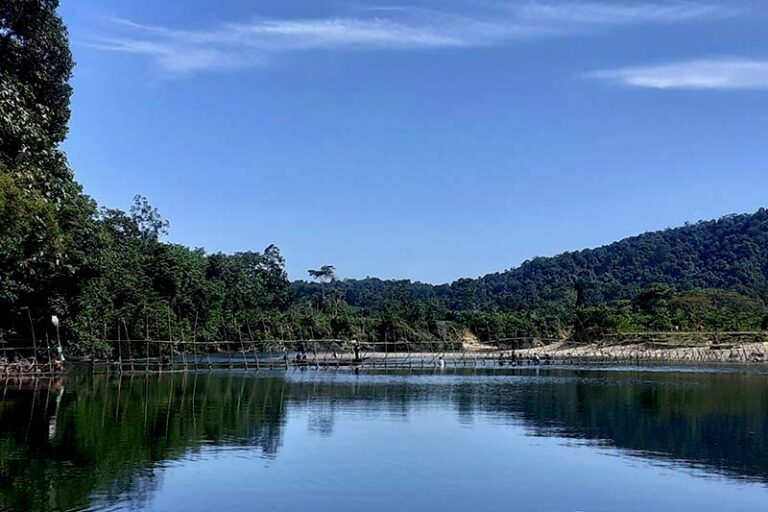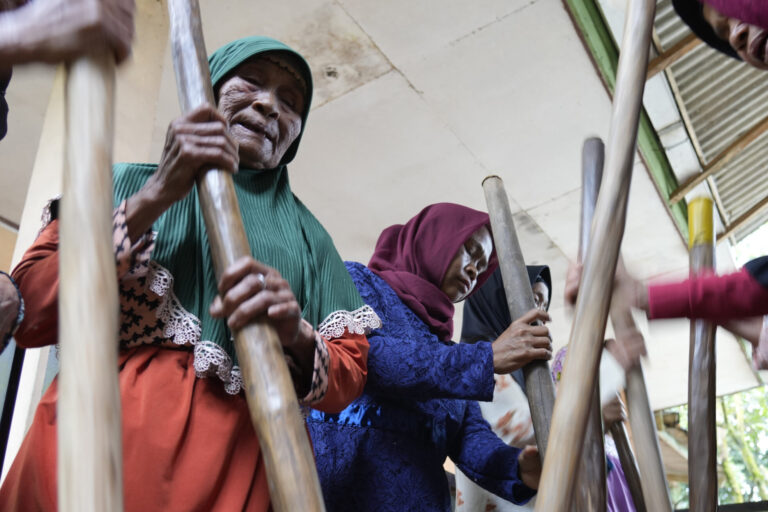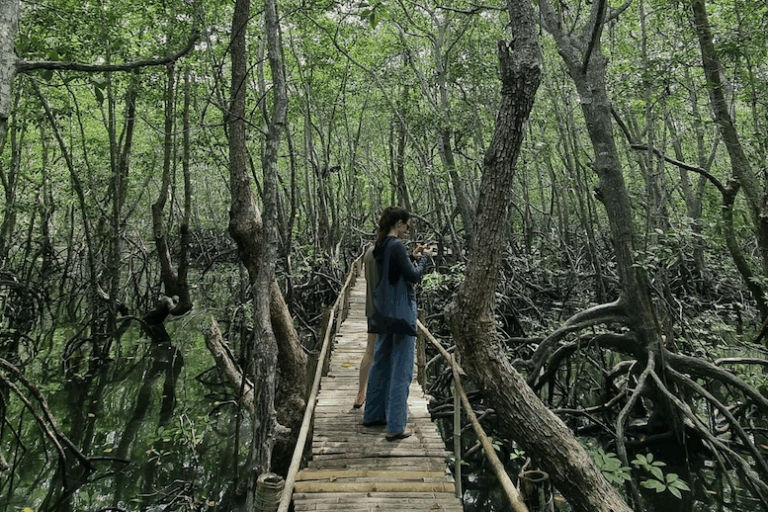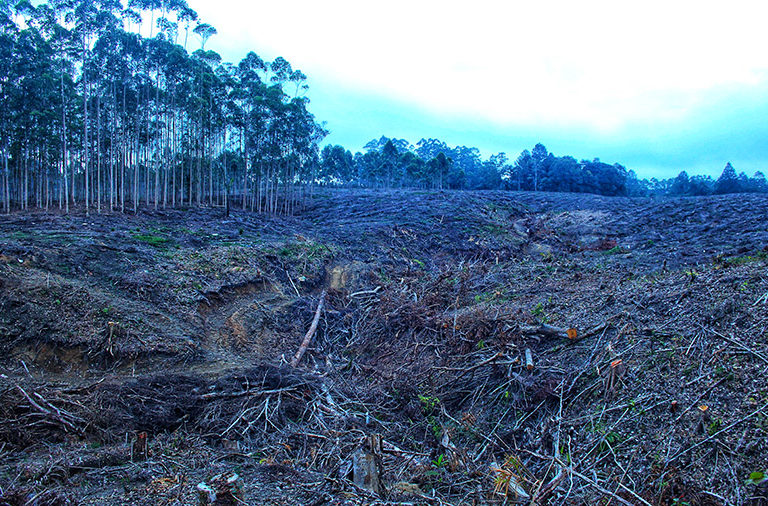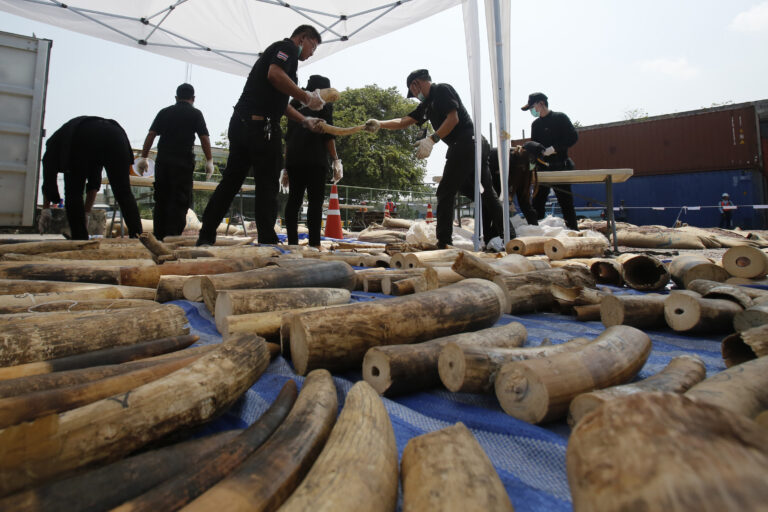Coal mining threatens the “Heart of Borneo”
Coal mining threatens the “Heart of Borneo”
mongabay.com
July 25, 2007
Coal mining in Borneo imperils the island’s fast-disappearing forests and threatens to undermine the effectiveness of an monumental conservation initiative, according to a report from the The Sunday Times and Parliamentary testimony.
BHP Billiton, the world’s largest mining company, plans to develop seven “forest mines” in the so-called “Heart of Borneo”, an expanse of biodiverse rainforest on the tropical island that is home to orangutans and other endangered species. Documents obtained by the The Sunday Times suggest that the Australia-based mining firm has lobbied to have the protected status of some areas lifted so it can begin operations.
Barry Gardiner, the recently appointed special representative on forestry for British prime minister Gordon Brown, said in Parliamentary testimony that despite pro-conservation overtones, BHP Billiton has pressed hard for mining in the biologically rich areas.
-
“The new, democratic Indonesian Government took commendably swift action to protect their remaining forests following the overthrow of the Suharto regime. On 30 September 1999, the Government enacted laws giving protected forest status to many of the remaining highland and key watershed areas. Included in that protected forest status were five out of seven concessions that the giant Anglo-Australian company BHP Billiton had, shall we say, secured under the Suharto regime,” Gardiner said.
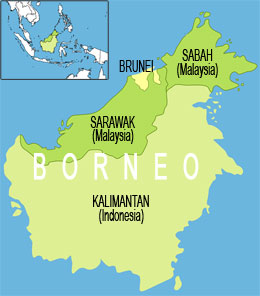
More about Borneo |
Forestry law No. 41 of the statute book of the Republic of Indonesia in the year 1999 No. 167, addition to the national statute book No. 3888, clause 38, sub-clause 4 strictly states that open-cast coal mining is prohibited in protected forest areas. Having already invested approximately $40 million in exploring the potential of those concessions, BHP Billiton was not going to see them rendered effectively worthless without a fight. Along with a number of other companies, BHP Billiton lobbied to have the concessions reinstated. It did more than lobby: it threatened to bankrupt the fledgling democratic Government by launching legal proceedings to demand compensation. The new Parliament first refused to buckle, but that group of foreign companies applied significant international political pressure.”
Gardiner continued, saying that BHP Billiton met directly with then president Megawati Sukarnoputri and “persuaded” her — by threatening to sue the fledgling democracy for $22 billion — to illegally overrule Indonesia’s Parliament. The company eventually secured 20,000 hectares of previously protected forests, according to Gardiner.
BHP Billiton: friend or foe to conservation?

|
BHP Billiton maintains that it will conduct operations in a manner than minimizes the impact on the rainforest environment. To its credit, the firm has sponsored protection initiatives for the charismatic orangutan in other parts of the country. Nevertheless, its presence in the Heart of Borneo is a concern for conservationists, especially given its track record in other sites.
“This is going to be a belt of mines right across rainforest. It will drive out wildlife and will be a disaster for the island,” David Chivers, of the Wildlife Research Group at Cambridge University, told the The Sunday Times.
“BHP Billiton is a climate dinosaur. A deluge of base camps, roads, and open-cast pits would eat the heart of this island from the inside out.” Farah Sofa, deputy director of Indonesian environmental group Walhi, was quoted as saying.
“The Heart of Borneo is a promising conservation initiative but these proposed coal mines are an inauspicous start,” Dr. Francis Q. Brearley, a researcher from Manchester Metropolitan University who has worked in Central Borneo, told mongabay.com. “The forests in this area would have a much brighter future if they were to be maintained intact and economic value could be gained from the carbon stored within them”
Still, argues environmental group WWF, conservationists may have better luck dealing with BHP Billiton, a large multinational that will face public scrutiny and international pressure on its operations, than smaller firms less concerned about their reputation. WWF says that should BHP Billiton pull out, less accountable companies may well move in, causing even more damage.
Borneo’s forests
Since 1980 Borneo’s forests have been reduced by more than one-third, mostly as the result of industrial logging, which later fueled large-scale fires (especially severe in the el Niño years of 1982-1983 and 1997-1998) and land conversion for oil palm plantations. WWF projects that by 2020 less than one third of Borneo’s forest cover will remain, mostly in the central highlands of the island, while the United Nations Environment Programme (UNEP) says that 98 percent of orangutan habitat will disappear by 2022. Presently about two-thirds of Borneo’s most biodiverse ecosystems, the lowland Dipterocarp forests, have been lost.
Since 2000 Borneo has had the world’s highest deforestation rate with annual forest loss approaching 4 percent per year. While the conservation community received positive news in February 2007 when the governments of Brunei, Malaysia, and Indonesia, working with WWF, agreed to protect roughly 220,000 square kilometers (85,000 square miles) of tropical forest in the so-called “Heart of Borneo”, a prominent group of scientists from the Association for Tropical Biology and Conservation say that the initiative does not do enough to safeguard the island’s most biodiverse ecosystems: its lowland forests.







